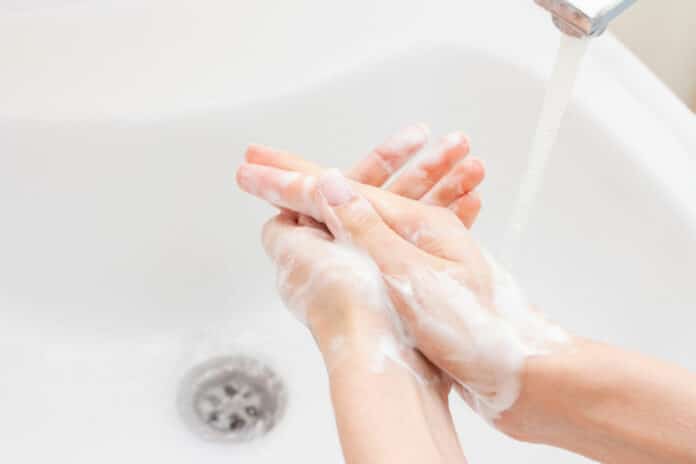Healthcare workers often use alcohol-based sanitizers and harsh soaps instead of skin-friendly cleansers, leading to irritant contact dermatitis. This condition occurs when the skin is damaged more quickly than it can repair due to chemical or physical agents.
The incidence and severity of irritant contact dermatitis rose from 20% to 80% among healthcare professionals during the COVID-19 pandemic. Additionally, researchers discovered that non-enveloped viruses like norovirus were resistant to everyday hand wash products, requiring bleach disinfectants for effective elimination. However, bleach is not a practical option for handwashing.
A University of Sheffield study reveals that mild cleansers are as good at killing viruses, including the coronavirus, as harsh soaps. Healthcare professionals often use skin-friendly cleansers to avoid irritant contact dermatitis, a common skin condition causing red, swollen, and damaged skin. The incidence and severity of this condition surged from 20% to 80% among healthcare workers during the COVID-19 pandemic.
Despite the everyday use of mild handwashing products, there’s limited evidence of their effectiveness against spreading viruses like human coronavirus, herpes simplex virus, norovirus, and influenza. Researchers from the University of Sheffield‘s Sheffield Dermatology Research group tested various handwash products, including antibacterial soap, natural soap, foam cleansers, and bathwash products.
The study focused on their ability to kill enveloped viruses (e.g., human coronavirus and influenza) and non-enveloped viruses (e.g., norovirus and adenovirus). The results, published in Frontiers Virology, reveal that gentle cleansers kill enveloped viruses. However, non-enveloped viruses show resistance to both mild and harsh soaps.
The study suggests that using gentle cleansers instead of harsh soaps is effective against enveloped viruses, including the human coronavirus. This is excellent news for those in jobs where irritant contact dermatitis is common.
The research also showed that adding moisturizers to protect the skin didn’t reduce the antiviral effectiveness of the products. This means we don’t need to use very harsh products to kill viruses on our skin. However, the study found that non-enveloped viruses, like the winter vomiting bug (norovirus), showed more excellent resistance to all types of handwashing products, whether harsh or mild.
Natalie Winder, the study’s first author from the University of Sheffield, explains “that even after increasing exposure time to handwashing products, norovirus remained unaffected, except by bleach. However, bleach-based hand washes are not practical due to skin harm. “
Norovirus spreads quickly, requiring only 18 particles for infection compared to 1,000 for coronavirus. While good hand hygiene is vital, it’s insufficient for norovirus control. Isolation and surface disinfection with bleach prove more effective, prompting further research on safe, diluted bleach-based hand washes.
While the study underscores the effectiveness of gentle cleansers against enveloped viruses, it prompts further exploration into alternative strategies for controlling non-enveloped viruses. The research contributes valuable insights into optimizing hand hygiene practices, offering a balanced approach for effective virus prevention without compromising skin health.
Journal reference:
- Natalie Winder, Zahra Ashraf, et al., Are mild cleansers appropriate for hand hygiene in the COVID era? An in vitro investigation of the antiviral efficacy of different hand hygiene products. Frontiers in Virology. DOI: 10.3389/fviro.2023.1180815.
